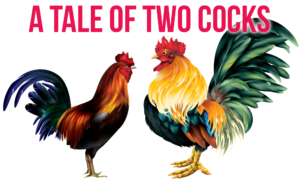Yesterday, @Fentrix said in a comment on my writing:
As if talking about an opinion I’ve held that I’ve found useful in my life has anything to do with right or wrong, it has to do with utility.
To which I answered just this morning:
Yes! It’s useful to me. If it’s useful to you, I’m so glad. If it’s not, that’s cool, too. If I inspired you to think… I’m pleased as punch.
I don’t care that people believe in compromise in their relationships, in low context communication, in CNC… If it works for them and their partners, I’m all for it.
I do talk about how I think and why, and how I grow through issues, because when I’ve been doing all this, reading others doing the same thing (even in vastly different channels) has helped me learn more about myself and how I think.
And then looking at my calendar, I see that the point meshes quite well with what I intended to write about today.
A friend of mine recently went through a break up. After a LONG relationship that was mostly good, but had a flaw that neither of them could overcome.
That’s OK, right?
Well, what if I told you that he’s a relationship coach?
Yeah.
BAM!
Now, it’s suddenly a different thing.
Now, it’s the failure of the ONE thing many people would think he was a reliable resource for relationships as a writer, speaker and coach.
Huh.
I had someone once challenge me in a writing, suggesting that I shouldn’t give relationship advice if I have am not in a relationship of 10 or more years right now.
I mean, it’s their right to think that, and their absolute right not to read what I write, to think about it, or to act upon it.
However, as someone who has been in an abusive relationship, stepped out of it, recovered from it, discovered that I’m neuro atypical, learned and grew from that, got into an amazing relationship that also ended amazingly, when we realized we were not compatible, long-term, and have a passionate, sexy relationship now, along with a full life filled with people I love and who love me…
This is called “genetic fallacy.”
A genetic fallacy is when you judge something as either good or bad on the basis of where it comes from, or from whom it came, rather than on it’s own qualities.
This fallacy tries to avoid the actual validity of a point by shifting the focus to it’s origins, or the person positing it.
It’s similar to ad hominem, because it uses existing or creates new negative perceptions to make someone’s position look bad, without actually presenting a case for why the point itself lacks merit.
I reject that type of qualification.
What would I really have to think about myself…
…if I thought that my relationship was the only reason I was capable and qualified at writing, messaging, speaking and coaching about kink, relationships, dating, behavior modification, FemDom and more?
How healthy is it to believe that I only have ONE shot to do “love” right?
Or to think that a relationship ending is a failure, regardless of what I learned, why it ended, how we handled it together, etc?
Ever hear, “Out of the mouths of babes…”?
“When you love someone, it means you don’t want her to go away….like something you do kind and sweet to them…you don’t ignore them.” –Nicholas, age 5
I’m guessing that Nicholas there hasn’t been in a 10 year relationship at this point, and yet, I think that we can all learn from his words.
Sometimes people with less experience also have less mental baggage and blinders.
One of the things I teach is that when it comes to behavior modification (27 years of experience, y’all), it’s GOING to happen, so you might as well understand it.
We modify our own behavior based on personal experiences.
And our behavior eventually also modifies our thought processes (think how practicing physical things like shooting baskets changes how we instinctively react to different situations in the game), so we have a tendency to box ourselves in with ideas of ‘how things work,’ if we don’t make a concerted effort to avoid that.
And people with less experience have new a fresh viewpoints that are often right as well.
So, I share what works for me. Or what I think. Or what I think may work for me, and that I might try it.
It may not work for you.
You might think it’s absolutely bonkers.
And that’s cool.
Because just as “past results don’t guarantee future performance,” my results do not equal yours.








